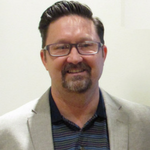When I started in recovery, my sole focus was sobriety. All of my actions were done to ensure I was not repeating the mistakes of the past so I didn’t continue to hurt myself or those around me. Sobriety was everything.
I didn’t realize my focus and determination to abstain from the behaviors would lead me into a dangerous habit of tunnel vision. Working hard in recovery with your head down might keep you on track, but will you able to see the train coming?
What happens when we focus solely on sobriety?
My understanding of sobriety and recovery has changed over the years. When my journey began, I didn’t know that the true opposite of addiction wasn’t sobriety, but connection.
Like many people new to recovery, I believed the goal was to stop my addiction. The blinders were firmly in place and I only saw what was directly in front of me. Consumed with running towards what I believed was the light at the end of the tunnel, I couldn’t see or hear the signs and warning bells.
I know what you’re thinking–sobriety is important. That’s definitely true, but sobriety can’t be your singular focus in recovery.
Much like a diet, sobriety tends to focus on restriction as the method to produce results. Here’s the problem–diets don’t work. None of us can live a life of restriction long term. It’s not sustainable or realistic. Dietitians will tell you if you want to lose weight and keep it off you have to change your lifestyle.
The idea of recovery as a lifestyle or mindset focused on making healthy choices that promote connection saved me from years of misery and resentment. It has also helped to keep me sober. We need a mindset that, like a camera, has the ability to focus and refocus, to both zoom in and pull back when we need the larger picture.
In working with clients, I’ve noticed some common trends when addicts have tunnel vision set solely on sobriety. Here are the six most common dangers I’ve seen.
We make recovery our higher power.
Walk into any 12-step meeting and you will hear about the importance of God in recovery. One benefit of hitting bottom is it gives us nowhere else to look but up.
Sobering allows us to experience the world in ways that had alluded us in our addiction. The clarity and newness of it can be intoxicating and old habits die hard. We throw ourselves into recovery, running top speed down the mythic path of 12-step enlightenment, chasing the next sobriety chip, and getting high every day we add to our sobriety.
“My name is Jeff, I’m a sex addict. I’ve been sober since…” I loved it. Something tangible to affix my value to. Something I believed I could control. You see where this is going right?
Fast forward and recovery becomes more about holding on and less about surrender. Boundaries become blurred. Truth becomes skewed. Steps one through three have been replaced with an ego-charged trampoline. Humility becomes pride and pride as we know comes before the fall. God was useful in the beginning when it was evident we couldn’t do this alone, but now recovery has become an idol.
We focus recovery only on ourselves and forget our family.
As individuals, we are all connected to some kind of larger system–whether family, marriage, church, social circles, etc. But recovery has the tendency to become very addict centric–focused all on our struggles and our feelings. While understanding these things is a very important piece of recovery, it’s not everything. Often what isn’t accounted for in recovery is the interplay between the various systems.
This is especially highlighted in the lives of married addicts. I see so many guys who do a fantastic job staying sober, but neglect the larger system of their marriage. Over time, their commitment to sobriety fades when they don’t see or feel the immediate benefit in the marriage. Specifically, when addicts don’t see their parter jumping for joy because they’ve been sober for six months in the 20 years they’ve been married.
Another huge problem that factors in is the painfully slow acceptance of the trauma model in the SA community. The historical co-addict model is outdated and extremely damaging, but it’s still very much alive in groups and therapy. It affords the addict the time to “clean up his or her side of the street and partners to clean up his or hers.” Somehow, when they both magically get “healthy,” they are supposed to be able to come back together and work on the marriage. The problem is the marriage doesn’t stop for anyone to get healthy.
Related: Stop the Abuse of Partners of Sex Addicts
Addicts who only focus on sobriety fail to support their partners when they need it the most. The result is a “sober” but frustrated addict, a partner that’s still hurting, and a marriage on the brink. This leads to a misery, which can lead to the loss of sobriety and everything the addict holds dear.
We start to just show up.
I’ve been to many meetings during the past ten years. In the beginning, I was thrilled to have found my people. Other broken guys like me who had done some not so fantastic things out of that brokenness–whose actions and self-centered attitudes destroyed those closest to us. It felt great to know I wasn’t alone.
This should be a huge indicator to the importance of connection. I needed to feel the acceptance that only real connection provided almost more than I needed air. Connection was the key I had been searching for but failed to realize the importance of. It felt great, but I couldn’t find the keyhole, much less the door, that it fit in. Further, I wasn’t sure if I could trust what was on the other side when and if I did find it. This scared me, so I relied on what I knew to be safe–logic, facts, and reason.
Like most addicts new to recovery, I had a checklist of action steps to follow that my counselor gave me. It was a tangible blueprint for success. I loved it. If only my wife had one as well. I proceeded to go down the list and check each block:
- Attend at least two meetings a week. Check.
- Stop the behaviors, find a sponsor, work the steps. Check, check, and check.
I believed the “cure” would be found in the meetings. Turns out, it is, just not where I was looking.
The most important part of any meeting is not found in the literature or the shares or even the steps–it’s found in the connections we make with others. Sure, you might glean some good nuggets during the structured time of the meeting, but you could get that out of a book. The meeting’s power comes from the strength you derive when you feel like you’re a part of something larger–the sense of community and acceptance, what we had been searching for in our addiction. These connections happen when we come early and stay late.
We lose balance of our spirit, mind, and body.
When I think of what constitutes total health, I think of three things: spirit, mind, and body. It’s a balancing act that no one ever truly perfects. Each of the three are important to balance and come with a variety of challenges.
Spirit
In my opinion, this should be the most important area of focus. It all starts here with our connection to our Creator.
Why is it so important? Because it’s where our sense of value and worth should come from. Understanding that our value can only be determined by our Creator. It’s fixed. It’s not based on our actions or lack thereof. You can do all the good deeds you want and it won’t make you any more valuable to God than you already are.
Conversely, nothing you do will decrease your value either. Having sin in your life does not make you less valuable to God. This is the truth. The enemy would have you believe your value is determined by anything but God’s truth about you. He uses this lie against us as evidence as to why we are unworthy of connection. We must reject this because this lie often keeps us in a place of shame.
Shame changes the narrative from “I’ve made a mistake” to “I am a mistake.” People who believe they are a mistake naturally feel unworthy of a connection not only to God, but to others.
Take time each day to fill up at the well of God’s presence. Accept the truth about your identity to avoid walking around empty, looking to take from others in order to fill yourself up. No substitute can fill the God-shaped hole in all of us.
Mind
This can take on many different forms–counseling, behavioral modification, relationships, mindfulness, trauma resolution, self-regulation, family of origin, etc. I tend to focus more on doing whatever I need to do to stay in a good recovery mindset. Sometimes it’s situational, sometimes it’s very intentional.
Bottom line, if you’re able to stay in a good recovery mindset, sobriety will be a given. But focus too much on restriction and soon recovery can become overwhelming and miserable. This can lead to slips and relapse.
Body
If you’re relying on your mind to be one of the primary tools in recovery, you have to keep it functioning at an optimal level. Healthy eating, good sleep habits, and exercise are important. Neglect your body and your mental health will follow. The same holds true when we neglect our mental health.
Great things happen when we are able to find a healthy balance in caring for our spirit, mind, and body. I’m not sure any of us will ever find perfect balance, but it’s a good goal nonetheless.
It might be more realistic to see these as things done to counterbalance. The moment one area is out of balance, intentionally shift your efforts to get to a more balanced place. Make this a priority and do whatever you need to do to regain balance. Be intentional about it. If you’re not willing to do this for yourself, it’s doubtful anyone else will make it their priority or do it for you.
We ignore relationships.
If you accept the premise that the opposite of addiction is connection and not sobriety, then the importance of relationships should be evident. All of us were created to be relational. Failure to understand this or refusal to take action to repair and restore relationships leads to isolation. Isolation is deadly.
The mental and physical connection received helps promote healthy psychological and physical development. Often these relational needs were neglected in the life of the addict, creating the “need” which addicts try to get met in unhealthy ways through their addictive behaviors.
The main problem comes into play when addressing the addicts core belief system. These core beliefs are:
- “I’m basically a bad, unworthy person.”
- “No one would love me as I am.”
- “My needs are never going to be met if I have to depend on others.”
- “Sex (acting out) is my most important need.”
Challenging these core beliefs is an active process. An addict’s success in doing this is measured in the quantity and, more importantly, the quality of relationships in the addict’s life. In addition, the more quality relationships addicts have, the less these core beliefs are present. This is one of the most important, if not the most important, concept in recovery.
I would rather have a client do less formal recovery work and feel connected than more recovery activities and still feel disconnected and therefore not valuable.
The key is vulnerability and transparency–it takes us to a place of deeper connection, whether in our marriage, friendships, or with family members. Challenge any and every thought that makes you believe you’re not worthy of connection. Reject passivity and make a conscience decision to make connections. None of us can do this alone.
We fail to prioritize.
One of the first things I do when working with a client is have them write down their top five priorities. Their list typically looks like this: recovery, marriage, kids, family, work. When I ask where God is, their answer changes to reflect God as being their first priority. This is easy enough to do.
It gets difficult when I ask, “How do you demonstrate these priorities in your daily life.” I do this to highlight how easy it is for us all to live outside of our priorities.
I believe the majority of the physical and psychological problems we experience result from this incongruence. Failure to properly prioritize from the start or not being intentional about how we live can cause serious problems. For instance, placing your wife or recovery above God will result in those things becoming your higher power. That’s not fair or healthy for anyone. It only repeats the pattern of trying to get healthy needs met in unhealthy ways and often leads to relational disaster.
Sexual addiction is multifaceted and requires a multifaceted approach towards recovery. Many efforts must be done in tandem addressing both the individual and the larger system. Life affords us little reprieve. Failure to slow down and work deliberately according to a preconceived set of priorities can make us feel like the Dutch boy desperately trying to plug all the leaks while the Burghers inside our head try to figure out what to do next. Set realistic goals based on your priorities and be intentional in how you live.
We can avoid the train.
It’s important to realize that as addicts, we can stop the behaviors and still be “drunk.” Understanding more about the importance of connection and its relationship to sobriety will allow you to see the whole picture. My hope is that you are able to see the common denominator in the six examples given and avoid the train.
Related resources:
- How to Quit Porn: 6 Essential Steps
- 6 Ways My Husband Helped Me Heal From Betrayal
- Can accountability really change a heart?
 Jeff Hutchinson is a Professional Life Coach and Certified Pastoral Sexual Addiction Specialist. Jeff serves on the board of the International Association for Certified Sexual Addiction Specialists. He retired after 21 years of military service and founded Caribou Coaching. Jeff works with men whose lives have been affected by pornography and sexual addiction. He and his wife, Ella, co-own Comfort Christian Counseling in Katy, TX, and have spent the last seven years helping couples walk through the pain and brokenness of sexual addiction.
Jeff Hutchinson is a Professional Life Coach and Certified Pastoral Sexual Addiction Specialist. Jeff serves on the board of the International Association for Certified Sexual Addiction Specialists. He retired after 21 years of military service and founded Caribou Coaching. Jeff works with men whose lives have been affected by pornography and sexual addiction. He and his wife, Ella, co-own Comfort Christian Counseling in Katy, TX, and have spent the last seven years helping couples walk through the pain and brokenness of sexual addiction.








Thank you. My husband who has struggled with his addiction for over 30 years inc.uding all 11 years of our marriage is now under the SA belief that he fix his stuff and I fix myself and our children. It’s so frustrating to see him ignore the reality that his addiction devastated our family and he walks away to care for himself. First his pervasive selfishness in addiction now selfish recovery. I just don’t understand nor can I imagine our family surviving.
I’m so sorry, Mariana. I truly believe that many men find porn to be an easier form of relationship, and this is their attraction to it. If that problem is not resolved, then they will simply find other behaviors that once again substitute for relationship, as you are discovering. Dan and I talked about this on a Facebook Live conversation not long ago. I think if you can’t resolve the underlying lack of intimacy issue, then you’ve just substituted a new problem for the old one. The good thing about his new perspective is that it should help him to understand when your choices diverge from his and you have to make your own healthy boundaries! Here, here, and here are some articles that might help. Peace, Kay
Hi, timing is everything, and I feel as if this article was written specifically to me. I’ve been in an SA program for about a year now, and I still haven’t found long term sobriety. It’s been difficult. At times I feel like I’m completely focused on sobriety and abstinence to the exclusion of all else. I’ve put a lot of other things in my life on hold in order to focus on recovery. I have made many new connections and am please about this, but again, the sobriety to taking longer. It frustrates me very much, and I’m wondering if this itself is a sign that I’m focused too much on sobriety. I’d like to find my sobriety, but I don’t want to be a slave to it.
Anyway, enough about me. This was an extremely helpful article. I’ve read many of them here on the CE website, but I’ve never posted a reply. I have printed it out and will refer to it again. My sponsor often says that the opposite of addiction is connection. You’ve fleshed that out for me. Many thanks from an addict working a recovery program.